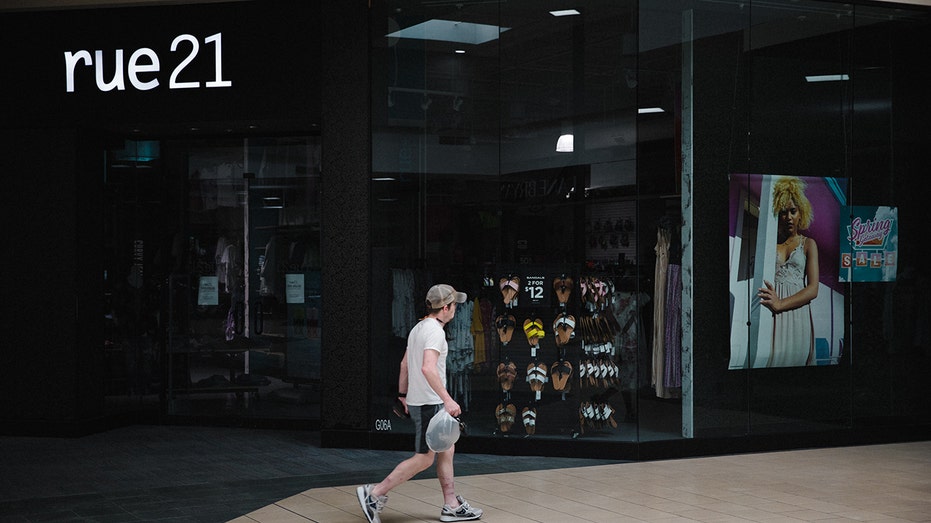Rue21 files for bankruptcy, will close all stores
Rue21 had roughly $194.4M in debt
Troubled retailer Rue21 – once a mall staple – filed for Chapter 11 bankruptcy protection, and plans to shutter all its stores and sell all its intellectual property.
This marks the third time the company has filed for bankruptcy as it struggles to continue operating.
According to court documents filed in the U.S. Bankruptcy Court in the District of Delaware, the company plans to close its stores and implement "going out of business" sales.
RADIO GIANT AUDACY FILES FOR BANKRUPTCY AS ADVERTISING PLUMMETS
The company has about 540 stores in the U.S., according to its website.
Reuters reported the company tried to sell its business, but it didn't secure a buyer that was willing to pay more than what the company would earn by liquidating its inventory.

A shopper walks past a closed Rue 21 store in the re-opened Anderson Mall in Anderson, South Carolina, on Friday, April 24, 2020. ( Dustin Chambers/Bloomberg via Getty Images / Getty Images)
The company has racked up roughly $194.4 million in debt.
The teen clothing retailer first filed for bankruptcy protection in 2003, followed by a second time in 2017, Reuters reported. During its second filing, the company closed 400 stores, allowing it to cut $700 million of its debt, according to the outlet.
ELECTRIC SCOOTER RENTAL COMPANY BIRD FILES FOR BANKRUPTCY
Rue21 isn't alone. In fact, the U.S. saw a significant rise in corporate bankruptcies last year.
Debtwire's latest Restructuring Insights report found bankruptcy filings jumped 58% in 2023, climbing from 179 in 2022 to 282.
GET FOX BUSINESS ON THE GO BY CLICKING HERE
"The 58% spike in bankruptcies in 2023 signaled a major shift in lenders' attitudes, unwilling to prolong support for struggling companies," said Catherine Corey, Debtwire's global head of restructuring data.
"A convergence of challenges, including the post-pandemic withdrawal of government support, inflation, rising interest rates, supply chain disruptions, global unrest, and stricter lending requirements, created a perfect storm."
FOX Business' Breck Dumas contributed to this report.





















